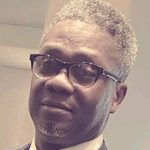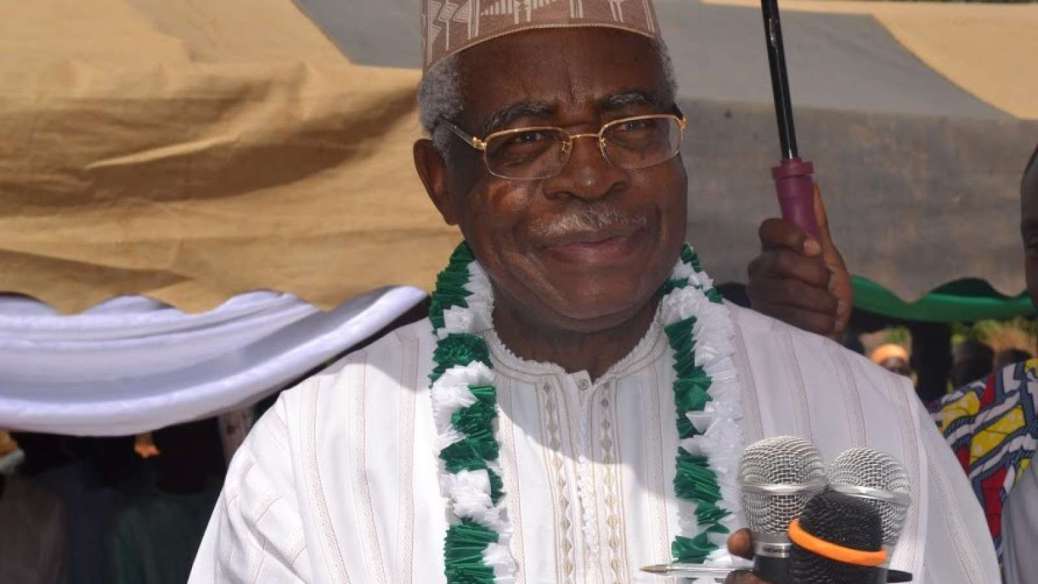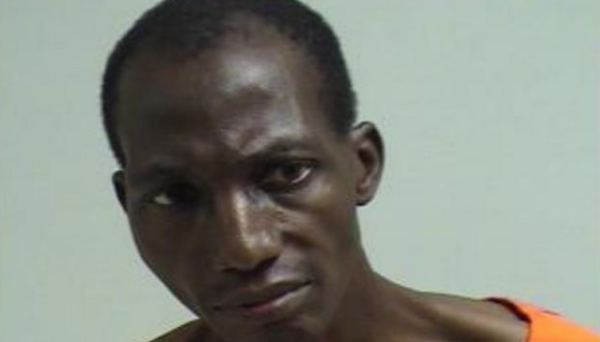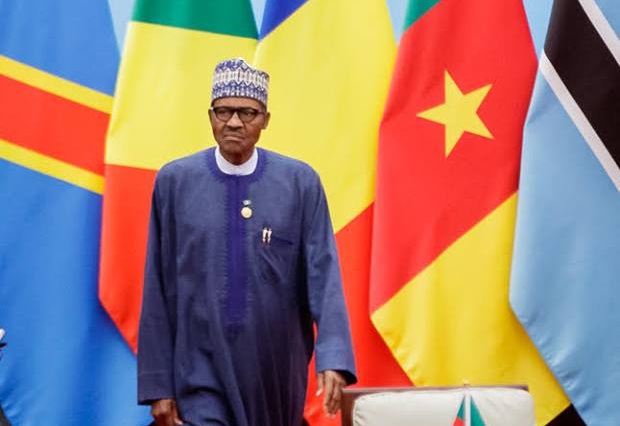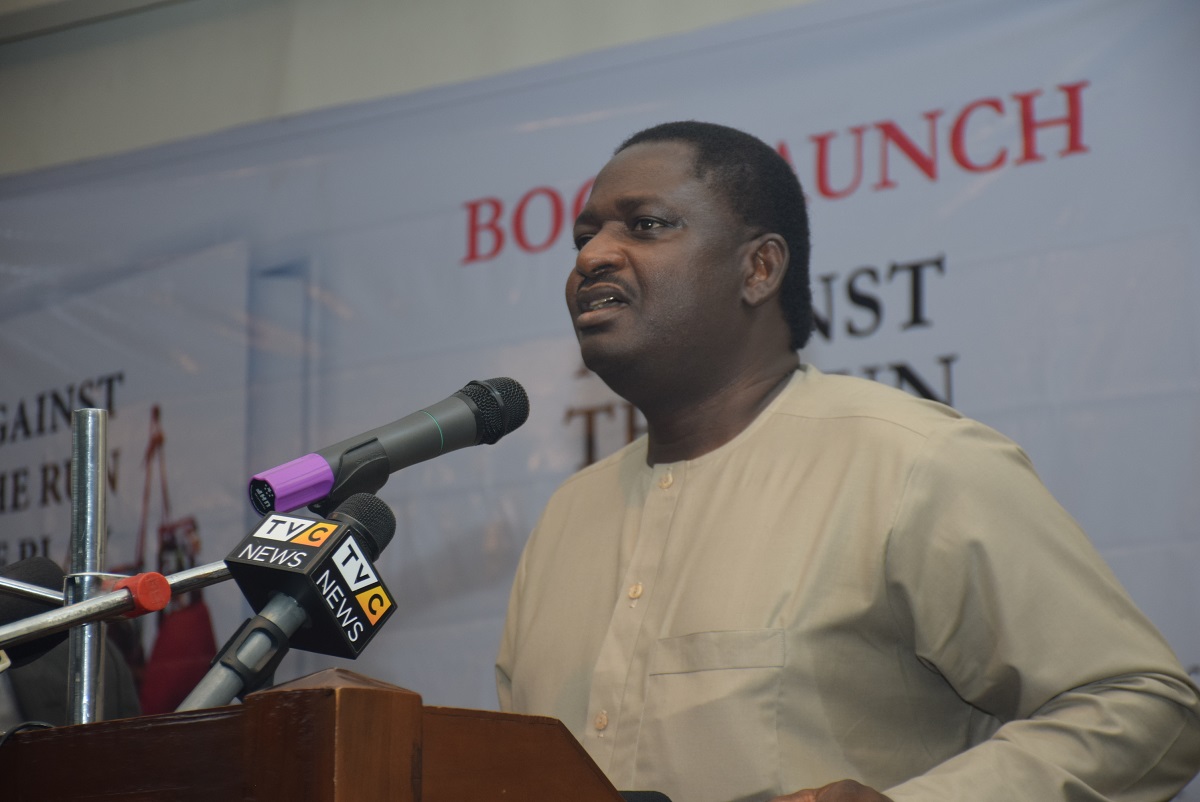General Theophilus Yakubu Danjuma – former Chief of Staff of Nigerian Army, and erstwhile Minister of Defence – will today address the British House of Lords on the seemingly intractable herdsmen attack and its implications for ethnic minority rights and stability in Nigeria. General Danjuma will be accompanied to the forum by Archbishop Ben Kwashi, the Anglican Bishop of Jos.
The Bridge News, Irohin Odua, Oriental News and The Boss Newspapers among others reported in the last 48 hours that the retired general – who is also a leading light of the forum of the Nigerian Christian Elders, a multi-sector businessman, notable philanthropist, and founder of TY Danjuma Foundation – will address the historic House, also called the House of Peers, the upper house of the Parliament of the United Kingdom.
As reported by Wikipedia, officially, the full name of the House of Lords is: The Right Honourable the Lords Spiritual and Temporal of the United Kingdom of Great Britain and Northern Ireland in Parliament assembled. Like the lower House of the Parliament in the UK (the House of Commons), the House of Lords also meet at the Palace of Westminster in London.
As I read the story about General Danjuma’s scheduled visit, I remember my visit to the same House of Lords on 18 April, 2006 (just a day before my 36th birthday). As the Special Media Advisor to the Minister of Information and National Orientation (later Information and Communication), Honourable Frank Nweke Jr (as he then was), I accompanied my principal to the House as a hearing opened on Nigeria. The Nigerian delegation was made up of three persons – His Excellency, Dr. Christopher Kolade (the Nigerian High Commissioner to the UK), Honourable Frank Nweke Jr, and myself. My brother and friend, Jide Iyaniwura, one of the most amazing and charitable member of the Nigerian Diasporan community, chauffeured my boss and I to the venue of the hearing. As I sat in the special gallery of the House, I knew it was a rare privilege and honour for me not just to be part of a Nigerian delegation, but to be led by HE Kolade – one of the noblest Nigerians of all times, whose life has become an unassailable compass; and also by Hon. Nweke Jr – arguably Nigeria’s most vivacious and introspective Minister of Information, and a living benchmark for patriotism and love of country.
Advertisement
The hearing at the House of Lords on that stated day in April 2006 was instigated by a number of protests that served as counterpoises to the attempt to amend the Nigerian Constitution to pave way for President Obasanjo to vie for a third unconstitutional term. Historically, in a democracy, with the notable exception of President Franklin Delano Roosevelt of the United States – who ran a third unconventional term in 1940 (essentially due to the raging World War II) and defeated his Republican challenger, the maverick businessman, Wendell Willkie – constitutions are usually amended to pave the way for presidents to run an additional unconventional term(s).
So, in response to the protests – particularly the one by the Nigerian Democratic Movement (NDM) based in Maryland, USA and led by Prof. Bolaji Aluko – and noting the widespread opposition to the proposed constitutional amendment, and ostensibly concerned about the implications of violent fallouts in case the proposed amendment succeed, the House of Lords instituted a hearing and debate about Nigeria. Accordingly, at the invitation of the House, the High Commissioner was invited to observe and the invitation was extended to my boss, who took me along.
Perhaps, the central lesson of that hearing was the nature of the interests of the House of Lords and Her Majesty’s Government in Nigeria. The United Kingdom – over, above and beyond the historical ties – evidently has other special interests in Nigeria. Besides economic which is evident in the debate, the UK Government was (and plausibly is still) averse to Nigeria leaning towards another power or some big countries. I remember one of the Lords said the proposed amendment must be properly managed so America does not make Nigeria an extension of its war on terror if violence broke out after the amendment. Another Lord also raised the issue of China and other Asian countries’ relationship with Nigeria, questioning if such relationship was within the framework of the UN. But the most significant outcome as the media reported it was the submission of Viscount Waverly who opened the debate on Nigeria that day. Others who spoke during the debate included: Lord Lea of Crondall, Lord Bishop of Coventry, Lord Chidgey, Lord Howell of Guildford, and Lord Triesman, who was also the Parliamentary Under-Secretary of State for Foreign and Commonwealth Office.
Advertisement
Viscount Waverly had argued that whatever the situation, the Obasanjo government should be commended for courageous leadership that found expression in socioeconomic and political reforms in Nigeria. He proceeded to invite Her Majesty’s Government to appreciate the Nigerian Government for its efforts at courageously reconstructing Nigeria. Conclusively, he noted: “safeguarding a democratic outcome to the constitutional amendments and recognising that Nigeria has come of age and is now master of its own destiny is the only sustainable policy. I wish Nigeria well”.
That session at the House of Lords on 18 April 2006 ended pretty much in the late hours, possibly after 8.00PM. I do not know when General Danjuma is slated to speak today but beyond my recollection from memory and residual knowledge, I have reproduced here (excerpts from the House of Lords Hansard) some of the concluding remarks of the contributors to the debate on Nigeria on that day. This is to enable the reader to deconstruct what their Lordships felt about Nigeria so that we all can be guided in our expectations of the position the House of Lords may take in respect of Danjuma’s presentation today. The remarks are below:
Lord Bishop of Coventry: “…with a further comment on religion, reference has already been made to the Archbishop of Kaduna, Josiah Idowu-Fearon, and to the Kaduna declaration, which was one of the fruits of the ICR in Coventry. The Archbishop’s nickname locally is “Mr Dialogue”. To our ears, that may sound like a compliment, but his insistence on regular, open discussions with Muslims does not always endear him to his own people. Simply by talking with the enemy – that is, with Muslims – many Church members feel that he is betraying them. To many Muslims, he is simply not to be trusted because he is a Christian leader. Mr Dialogue – Archbishop Josiah – frequently finds himself in a lonely place, yet there are many indications that the approach of open dialogue can work and can lead to greater understanding, trust and mutual respect. Only the religious leaders can achieve this breakthrough. Religion, while not the sole cause of conflict, is inextricable from other aspects of life in Nigeria, as it is in most of Africa. For that reason if for no other, people like Archbishop Josiah demand and deserve the strongest possible support from our Church and from our Government”.
Lord Lea of Crondall: “Nigeria has played a prominent role in the African Union. Although my comments have been rather downbeat, everyone in the business community and in government says that the developing role and aspirations of the African Union are making a difference. In the words, I think, of the president of the senate, it is now inconceivable that there could be a military government again in Nigeria. So we have to say that there are some green shoots which should be strong enough to promote democratic development – not just handing the whole country over to the Chinese, as it were – and ensure that the principles of parliamentary democracy flower, bringing economic and social success with them”.
Advertisement
Lord Chidgey (Liberal Democrat): “I turn to the issue of the forthcoming presidential elections and moves to amend the constitution to remove the bar on the president standing for a third term. It is right to say that we should approach this issue somewhat delicately. After all, who are we to tell other democratic countries how to run their affairs? Nevertheless, some of your Lordships will be aware of the heat that this has generated in many quarters and will no doubt have received only today a communication from a group calling itself the Nigerian Democratic Movement, based in Maryland, USA. For the record, the NDM is expressing fears that the ruling party is in fact seeking not one additional four-year term for Mr Obasanjo, but an additional 12 years—presidency for life in all but name. As would be expected, the NDM has supplied a raft of excerpts from across the range of Nigerian professional and civil society vehemently opposing these moves. It is not possible to corroborate these excerpts, but it is interesting that a study of reports by the BBC monitoring service for West Africa – in which I have great faith for accuracy – over the past few months confirms strong opposition against changes to the constitution from throughout society in Nigeria. The opposition ranges from Christian leaders in the north urging the president not to seek a third term, to militants in the Niger delta in the south threatening to engage the federal government in guerrilla warfare if he does not desist. In the light of the UK Government’s previous support for President Obasanjo and his professed belief in good governance, the rule of law and democratic accountability, I would hope that we could have from the Minister a detailed account of the Government’s reaction to what many will see as a series of unsettling and, to say the least, challenging developments”.
Lord Howell of Guildford: “I am sure we are all increasingly aware that new players are on the scene in Africa. The biggest new player is of course China, which has an increasing involvement everywhere. There was a report only today that China and Russia are playing a different hand as far as Sudan is concerned, where China has huge oil interests, and are blocking sanctions against Sudanese officials accused of involvement in Darfur violence. The Chinese Foreign Minister was saying only the other day that he regarded his country’s involvement in Nigeria as operating on the principle that, “We try to separate politics from business”. One wonders what links, exchanges and dialogue we are developing with these great new powers in the world—namely, China and the other Asian powers – as they pursue their agenda. Are they on board, as it were, in terms of a joint approach to the work of the UN regarding human rights? Are they acting as positive, responsible nations that want peace, as they keep saying they are? If they are, should we not co-ordinate more closely with them, and not think of ourselves just as part of a western world that has separate interests from the Asian world? After all, we do not; we all have the same interests, increasingly, in Africa. In my allotted time I can touch on only some of the issues affecting this enormous country, which could be the keystone to stability in the whole region; indeed, almost in the whole continent. I appreciate what the noble Viscount has reminded us of, that all is not doom and gloom in this part of Africa. But with the renewed violence, sabotage and the loss of oil, there is a feeling that one step forward often leads to one step back and that no progress is made – in fact, living standards continue to fall in some areas. We have one overriding and binding link with this great country. We and Nigeria are both members of the Commonwealth network, which is proving to be the kind of organisation and pattern far more suitable to the 21st century than the traditional blocs and institutions that were created in the last century. It is in our direct interest to see Nigeria stabilised and fulfilling its massive potential for Africa and the world, and that is what we must all work for, in the right way. I hope we will do so”.
Lord Triesman (The Parliamentary Under-Secretary of State, Foreign and Commonwealth Office): “A number of other issues have been raised in the debate. A dialogue is taking place with China. It is not easy, but it is taking place. As the noble Lord, Lord Howell, said, it would be foolish beyond belief not to try to engage with a country and a power so systematically involved throughout Africa, Latin America and other parts of the world. We raise human rights issues and peace issues. We are trying to find common ground. I suspect that it will not be a rapid dialogue, but it is essential to have a dialogue. As I said, it is in the interests of us all and also in Nigeria’s interests that we discuss all those kinds of issues, precisely because Nigeria will remain central and important to this country. One in four people in sub-Saharan Africa is a Nigerian. If Nigeria fails to meet the millennium development goals, it is unlikely that Africa will meet those goals. What happens in Nigeria impacts on the wider region and on Africa generally. As chairman of the AU, President Obasanjo played such an active role across Africa and he has continued to do so. He has taken a constructive part in the Darfur peace process and he has demonstrated his courage most recently by helping to deliver Charles Taylor to stand trial before the special court in Sierra Leone. That was a personal commitment for the president and it was not easy for him to deliver. I acknowledge it fully in the House tonight. I welcome what has finally happened. I do not believe that we shall ever make the mistake of ignoring how things develop in Nigeria. We shall continue to work hard to support the country, its president and his impressive team, to build on the successes of the past few years and where we can to address the issues that are important for Nigeria’s continued stability and development. Let me emphasise how we see the situation. This is a long-term relationship and a long-term friendship. It can never be anything else. As my right honourable friend the Foreign Secretary said in Abuja on 14 February: “We will remain committed to this country and to the closest possible relationship with it”. That is a simple obligation, best said simply and I repeat it tonight”.
In conclusion, I suppose the foregoing revealed to us the minds and mental matrices of those who determine the position of the United Kingdom on issues affecting both the Kingdom and other allies and interests of the Crown. Importantly, I hope we will come to the reality that however General Danjuma’s speech is received by the House of Lords, the ultimate solution to the troubles of Nigeria has to come from the citizens of Nigeria.
Advertisement
Therefore, as we prepare to vote in February 2019, I urge you all to participate actively in the processes leading to the election (however frustrating they may be); come out and vote; vote for candidates that have shown respect for and demonstrated commitment to the protection of human lives, security, Rule of Law, civil liberties, and sovereignty of the people of Nigeria irrespective of circumstances of birth or geographical ancestry and religion; and please remember to protect your votes.
We need to do the needful so we can begin to reconstruct our country by rebuilding all our social institutions in manners that make them enduring and responsive to the peoples aspirations. Then we will not need to take our battles to supposed allies in the international arena because our interests may not be the same as theirs.
Advertisement
May God Bless Nigeria.
Advertisement
Add a comment
